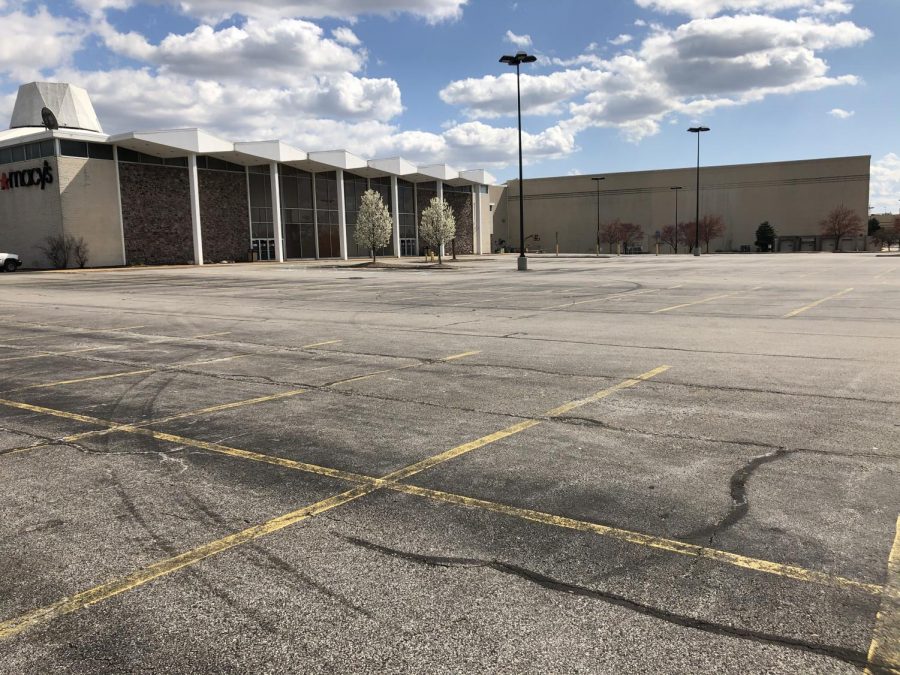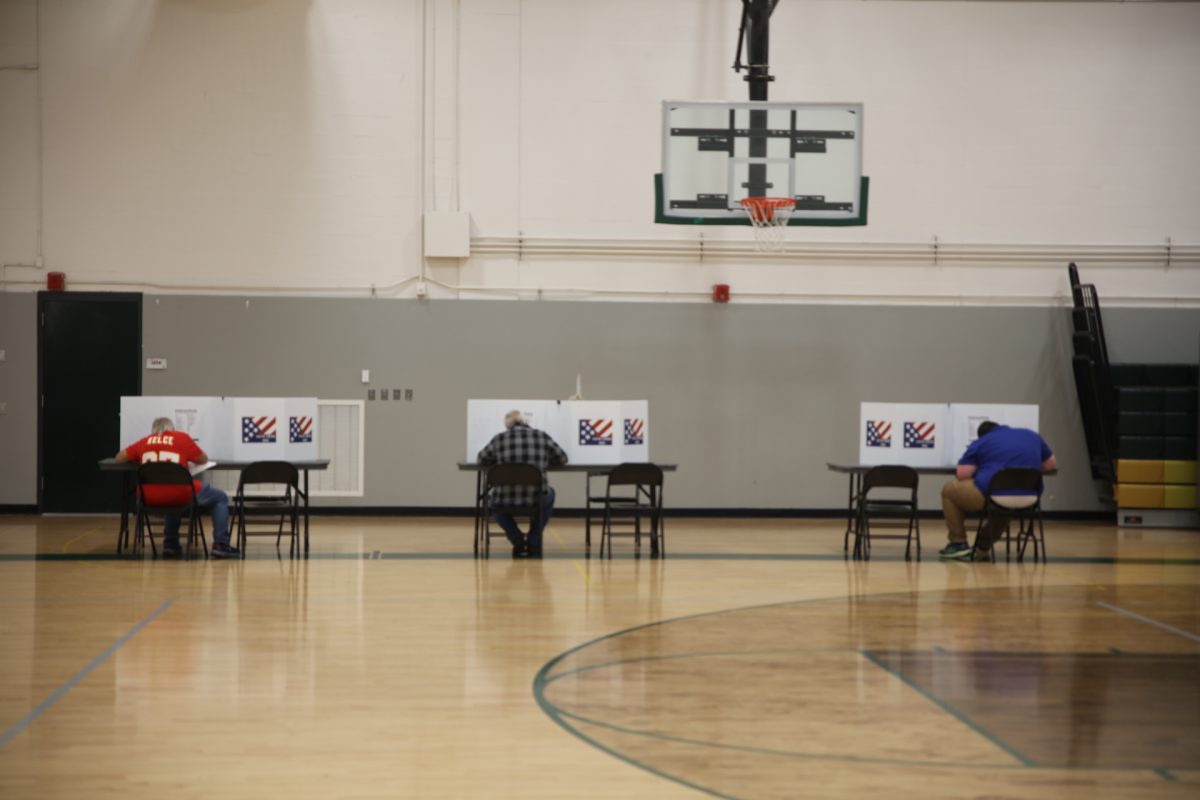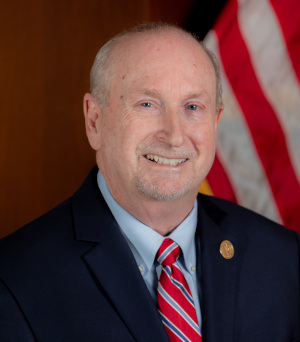Business owners from St. Louis County and the city of St. Louis have filed a lawsuit seeking to overturn the stay-at-home orders that are forcing “nonessential” businesses to stay closed until at least mid-May due to the coronavirus outbreak.
In a federal lawsuit filed Monday, Allan Finnegan of Manchester is challenging the legality of County Executive Sam Page’s stay-at-home order first issued March 21 and then reissued April 22. Finnegan owns Anytime Fitness at 14577 Manchester Road, also in the city of Manchester, through his company SH3 Health Consulting LLC.
In the city of St. Louis, Jefferson County resident Cherri Elder, owner of Elder’s Antiques, is suing to overturn Mayor Lyda Krewson’s mandate that “nonessential” businesses like her antique shop at 2016 Cherokee Street stay closed.
Gov. Mike Parson ended his stay-at-home order Monday, and Finnegan and Elder say in the lawsuit that they wanted to reopen their businesses Monday once it was allowed by the governor. Page’s current executive order has no expiration date, although he announced Tuesday that he is targeting a gradual reopening for May 18. Krewson has said her order is also in effect until at least May 18, when it will start to be lifted.
Page and Krewson’s decision to close businesses and force residents to stay home while Parson wanted them to open has caused a “deprivation of rights” for Finnegan and Elder under the First and 14th amendments to the U.S. Constitution, the lawsuit claims, which makes their case a federal one.
In addition to alleging that the county executive and mayor are violating constitutional rights, the business owners say that the two local officials cannot overrule the governor: Only the state health director has the power to close businesses during a statewide pandemic, according to the lawsuit.
The two business owners are represented by Clayton attorney Bevis Schock, who has sued and successfully overturned as unconstitutional the city’s red-light traffic cameras.
Finnegan and Elder are asking a judge to issue a temporary restraining order and then a permanent injunction to overturn the sections of the stay-at-home orders that require certain businesses to close.
The case was assigned to U.S. District Judge Stephen R. Clark, an appointee of President Donald Trump. A telephone hearing was scheduled for 1:30 p.m. Wednesday, but was moved up to earlier in the day. Clark did not make a ruling at the hearing.
St. Louis County Counselor Beth Orwick declined to comment on pending legislation.
In a Monday appearance on KMOX, Schock addressed whether forcing businesses to reopen could mean that more people die from COVID-19 in St. Louis.
“Anybody who puts themselves in a position of saying people shouldn’t die because it’ll be hard on them or bad for society are forgetting that society is a vast and complex fabric,” Schock said. “People are going to die because they’re alone and having psychological problems ‘cause of the stay-at-home order… We’re burning our house down, we’re intentionally burning down our economy. I don’t think that’s good even if it’s going to cause some deaths. What about the people who worked their entire lives to build these businesses, to have savings, the people who work in these places. There are going to be riots in the streets pretty soon, is that good? Death is part of the story of what’s happening. There has to be some sort of balancing.”
Schock added that he is not in the science game, he’s in the “follow the law game,” and the law will find that the orders are illegal, he said.
“I’m willing to stand up and say we accept the fact that more people are going to die if we open up. Which I don’t think that’s true, but let’s assume that’s true,” Schock said.
Operating a business is such a fundamental right that a government official taking steps to interfere with that right qualifies as “conscience shocking” as declared in a previous federal ruling, Schock argues in the lawsuit.
Not allowing a business to operate is a “violation of one or more fundamental rights that are deeply rooted in this Nation’s history and tradition, and implicit in the concept of ordered liberty, such that neither liberty nor justice would exist if they were sacrificed,” according to the lawsuit.
Finnegan is suing Page and county Department of Public Health acting director Emily Doucette. Elder is suing Krewson and city health director Fredrick Echols. The lawsuit argues the suits should be allowed to proceed together because they share claims under the law.
An order issued by Doucette April 20 echoes the restrictions Page set in his original executive order and mandates that “all businesses other than essential businesses shall cease all activities,” listing exceptions for businesses deemed essential. Gyms are closed, along with retail stores like antique shops that were also declared nonessential businesses.
Like Page’s latest order, the health order has no expiration date. Echols issued a similar mandate April 16 in the city.
Under the orders from Doucette and Echols, businesses that can operate remotely are allowed to continue operations even if they are classified as nonessential. But they are “required to cease all other activities,” the lawsuit quotes from the city’s order.
Finnegan and Elder argue that under state law, only Missouri Department of Health and Senior Services director Randall Williams can issue orders to close “places of public or private assembly” during a statewide pandemic. That makes the county and city orders illegal, they claim.
The lawsuit revolves around the argument that city and county officials can only make health orders that are “not inconsistent with the rules and regulations” issued by the state, according to a state statute.
The heart of the case is whether the St. Louis County and city orders are “not inconsistent” with the governor’s orders, Schock said.
State law does allow local health authorities to close a business when it is “necessary to protect the public health.” But the statute continues: “However, in a statewide pandemic, only the director of the Department of Health and Senior Services or the director’s designated representative shall have the authority to close a public or private school or other place of public or private assembly.”
The two owners also allege that the county and city orders violate their First Amendment rights since the customers at Anytime Fitness are “engage in expressive association and the advancement of shared beliefs” like the “need for exercise and social discourse to improve physical, mental and spiritual health.” In the case of the antique store, customers talk about the “artistic merits of different antiques and other topics.”
Therefore, not allowing the businesses to stay open violates the business owners’ right to assembly and right of association, as upheld in other federal court cases, attorneys argue.
They also say the orders violate the 14th Amendment’s due-process clause that protects life, liberty and property, the lawsuit states.




















